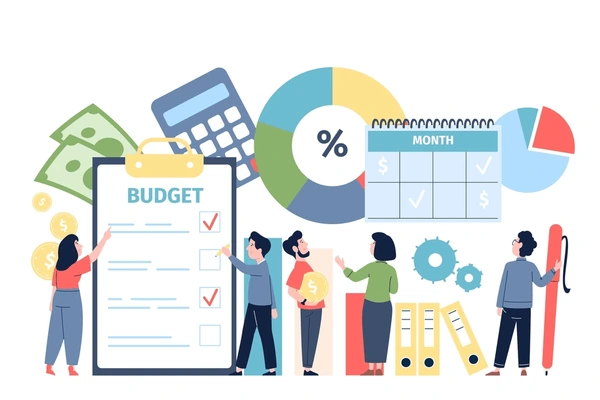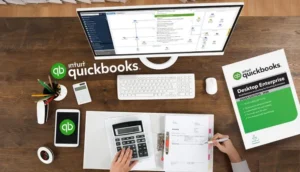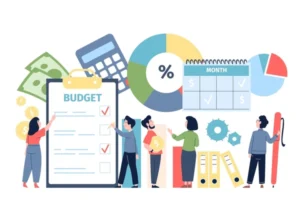
Think about going on a hiking trip without a map or compass. You would likely wander aimlessly, unsure of the path ahead, constantly veering off course. Each step becomes a gamble, leading to frustration and uncertainty.
You can even end up at the wrong destination. Similarly, living without a budget is like going on a financial journey without a roadmap causing unnecessary stress and financial insecurity.
It doesn’t have to be this way, though. Budgeting matters because it puts you in charge of your finances, ensuring you’re not just shuffling money around but directing it where it needs to go. Therefore, if you’re ready to take control of your financial future, it’s time to start budgeting now.
If you are new to budgeting, here’s the truth: it takes time to get into the swing of things and establish a routine.
If you are waiting for a sign to start your budgeting journey, we have listed five of them for you.
Let’s check them out!
1. Your Credit Scores are Going Down
Your credit score acts as a report card of your financial health, affecting your ability to obtain loans, mortgages or rent a property. While you will still have access to some financial solutions like payday loans for bad credit, your options for financial assistance will be limited.
Missed or late payments and excessive spending can lead to a decline in your credit score. You must get a hold of these habits by creating a detailed budget plan to prioritise getting your credit score to a healthy position.
Monitoring your score regularly and implementing a budgeting strategy can help you regain control. Besides this, you also need to ensure you track your expenses carefully, identify areas where you can cut back, and set aside funds for bills and savings.
Taking proactive steps now can prevent further credit score declines and help you in becoming financially stable.
2. Your Debt is Piling Up
It’s time to start budgeting if you are constantly in debt and finding it difficult to handle your expenses. Taking even small actions, such as chipping away at manageable portions of your debt, can make a big difference.
By taking these small steps you will be able to take charge of your financial condition. Budgeting enables you to keep a tab on your expenses, prioritise debt repayment, and progressively move towards financial security.
You can slowly lower your debt burden and pave the path for a more stable financial future by establishing realistic goals and adhering to a budget. Create a budget right away to end the debt cycle!
3. Your Employment Status has Changed
Whether you’ve faced a job loss or snagged a promotion, it’s necessary to realign your budget accordingly. Take stock of your new financial condition and make necessary adjustments to your spending habits.
Stay committed to this updated budget and be ready to tweak it if your income fluctuates. Remember, adapting your budget to your employment status change can help you navigate financial uncertainties with greater ease.
Additionally, keep a close eye on your expenses, prioritise essential needs, and explore opportunities to boost your income or cut costs where possible. With proactive budgeting, you can go through any career transition more confidently and smartly.
4. Your reliance on Credit Cards is Increasing
Credit cards can be very helpful when you need to make purchases but don’t have enough cash on hand. However, excessive reliance on them can land you into problems.
Every swipe you make adds interest to your account, which may add up quickly. If you find yourself reaching for your credit card more often than usual, there may be a problem with your finances.
An increased dependence on credit cards could indicate that your out-of-pocket spending is outpacing your income, which could lead to debt problems down the road. It’s important to keep an eye on how much you use your credit cards and consider making a budget if you want to regain financial control.
5. You are Not Prepared for Emergencies
Having emergency funds on hand is essential to financial stability. It’s a wise habit to set aside some cash from your salary for unexpected expenses. This safety net reduces stress and provides comfort in the event of unforeseen problems like unexpected car repairs, veterinary bills, or childcare responsibilities.
A lack of this financial safety net might lead to increased financial issues. Including an emergency fund in your budget makes sure that you will have the required funds on hand to handle life’s unexpected events with assurance.
By creating a budget now, you can safeguard your financial future and feel confident that you are prepared for any situation that may arise. Avoid waiting until the last minute.
To Wrap It Up
Waiting for signs to start budgeting is like waiting for a storm to strengthen your house. Being proactive when it comes to financial budgeting is very important.
Creating a financial budget isn’t merely a reactive measure, it’s a proactive strategy with many benefits. Beyond just balancing expenses, budgeting promotes financial stability, empowering you to navigate life’s uncertainties with confidence.
Don’t delay financial budgeting any longer, embrace its power today and make way for lasting financial wellness.





